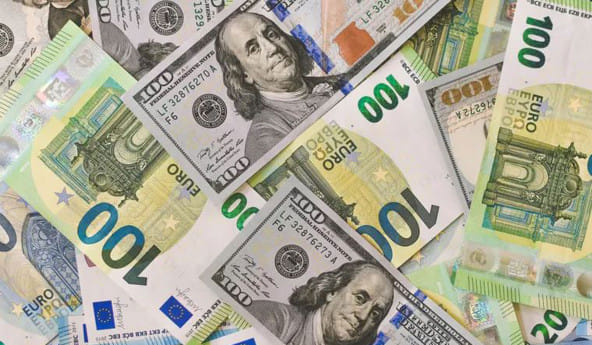Forex reserve slips below $22b

Bangladesh's foreign exchange reserves slipped below $22 billion yesterday after the central bank cleared import bills amounting to $1.36 billion through the Asian Clearing Union (ACU) and sold US dollars to banks.
The ACU is an arrangement for settling payments for intra-regional transactions among eight countries.
After the adjustment of the payment, the gross forex reserves stood at around $21.70 billion yesterday as per the International Monetary Fund (IMF) manual, said a senior central bank official, seeking anonymity.
On Thursday, the BB cleared the payment for the imports of July and August. On the same day, it sold $75 million to banks from the reserve as well.
Before the day, the reserve was around $23 billion.
After the adjustment of the payment, the gross forex reserves stood at around $21.70 billion yesterday as per the International Monetary Fund (IMF) manual
Md Mezbaul Haque, an executive director and spokesperson of the central bank, said the forex reserve stood at $27.61 billion after the ACU payment as per the central bank's calculation.
He did not share the data on gross reserves in line with the IMF BPM6 manual.
On July 13, the BB began publishing foreign currency reserves in line with the manual in a move that will ensure that the country's dollar stockpile is reported accurately.
As per BPM6, gross foreign reserves include gold, cash US dollar, bonds and treasury bills, reserve position in the IMF, and special drawing rights holdings -- which is a form of international money created by the IMF and defined as a weighted average of various convertible currencies.
Since the central bank's previous gross reserves computation factor in other components and subsequently, the number always ends up being markedly higher.
Under the ACU, Bangladesh clears import bills every two months and the reserve usually falls after the payment is made.
The ACU is a Tehran-based organisation of India, Bangladesh, Bhutan, Iran, the Maldives, Myanmar, Nepal, Pakistan, and Sri Lanka.
Bangladesh's reserves have kept falling since it surged to a record high of $48 billion in August 2021, driven by a spike in import payments in the post-pandemic period that continued even after the outbreak of the Russia-Ukraine war.
The central bank has had to continue pumping US dollars into banks as their stocks of the American greenback have dried up.
The BB sold $2.24 billion in July and August, the first two months of the current fiscal year. In the last fiscal year, which ended in June, it injected $13.50 billion.
When the IMF approved a $4.5 billion loan to Bangladesh in January, it imposed some conditions. One of the conditions has been to maintain a minimum net international reserve of $24.46 billion at the end of June, but the BB failed to meet the condition.
In February, the lender released $476.27 million as the first tranche of the loan and the country is expected to receive the second tranche by November.
Moinul Islam, a former professor of economics at the University of Chattogram, warns Bangladesh will face more challenging times if the depletion of the reserves can't be stopped.
"The government will have to take immediate action to tackle hundi in order to increase remittance flow through formal channels. Otherwise, the reserve will continue to drop."
Last month, migrant workers sent home $1.59 billion, down 21.5 percent year-on-year, in what has been the sharpest drop since April 2020, despite record outflows of Bangladeshis going abroad for jobs in recent times.
 For all latest news, follow The Daily Star's Google News channel.
For all latest news, follow The Daily Star's Google News channel.
Comments